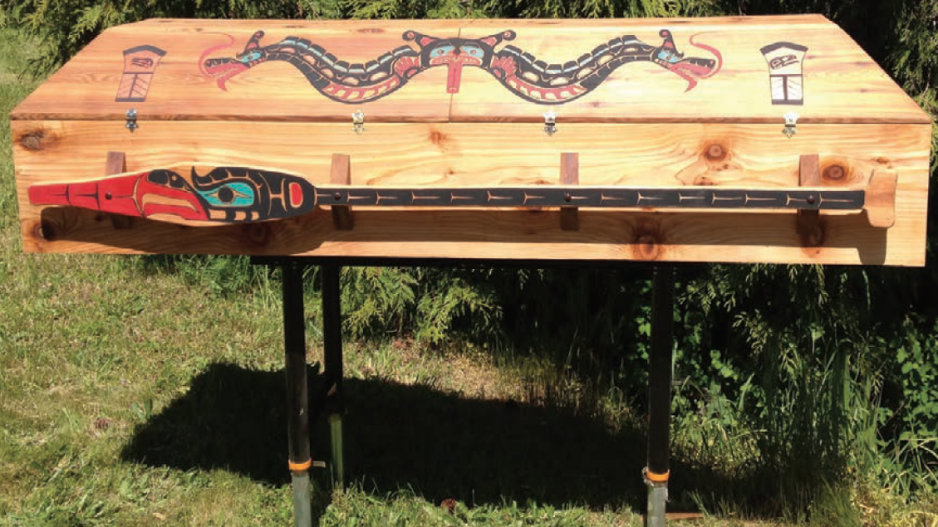Some businesses are recession-proof. The food business is one; the funeral business is another.
After all, everyone’s got to eat, and everyone dies.
A few years ago, Tom Simpson, a member of the Snuneymuxw First Nation, ended up – almost by accident – on the supply side of the funeral business when he started making cedar caskets for coastal First Nations.
His Cedar Journeys Caskets business has gone from making six caskets per year to 36.
He has done zero marketing and zero debt or equity financing to build his business. It’s grown organically solely on word of mouth, with most of his customers being other coastal First Nations, mostly in B.C.
Simpson knew nothing about the casket-making business when he got into it. His one advantage, from a business standpoint, is that he is an accountant.
In 2007, he had to quit working after he had a stroke. He was initially confined to a wheelchair, and even when he started walking again, he had little stamina.
The same year he had his stroke, Simpson’s mother died. When he and his family had been making prearrangements for their ailing mother, a funeral director had asked if he knew of anyone who made caskets out of cedar, which in coastal First Nations culture is a “blessed wood.” Neither he nor the funeral director knew of anyone who did.
“I never thought any more of it,” Simpson said.
But in the spring of 2008, Simpson decided he needed to do something with his time and thought working with wood would be good therapy.
He started with cedar caskets. Simpson modified the design of plans he’d found for making coffins by using cedar canoe paddles for handles.
“It’s kind of like a pine box, but with the significance that red cedar has for our families and our communities, it’s well received,” Simpson said.
In Coast Salish culture, cedar was used for making everything from clothing and hats to eating utensils, canoes, houses and burial boxes.
His first few caskets were plain, but then Tom Sewid, a Coast Salish artist, offered to paint some of his designs on Simpson’s caskets, which helped raise their profile.
However, many of the caskets Simpson makes are not painted by Sewid, but by relatives of the deceased.
Many First Nations have at least one artist in the family. Simpson therefore opens his shop to them so they can paint their own designs. He admits those designs are sometimes so beautiful that it’s a shame to see them go into the ground.
“Some of them, by the time they go out my shop door, the artwork on it, commercially, would be worth more than the unit itself,” he said.
When he started out, Simpson made all the caskets himself. He now has an assistant, and together they batch manufacture the caskets five at a time out of Simpson’s shop on the Snuneymuxw reserve.
Simpson sells his caskets for about $1,300 each. At that price, he’s not exactly getting rich.
“The industry actually encourages me to charge more,” he said.
But Simpson likes to keep the price for caskets as low as he can.
“It seems the product really has some potential, some legs perhaps, even on the national level, but I haven’t vigorously pursued that as yet,” Simpson said. “Part of that is my adherence to this current business model. There is some social enterprise aspect to it.”
Running his business on reserve, and selling to customers who mostly also live on reserve, has some tax benefits, which helps Simpson keep the price of his caskets down. And though culturally significant to First Nations, cedar is cheaper than the hardwoods that are traditionally used to make caskets. There’s also no markup, because he sells direct to customers.
“The industry doesn’t really like that I do that,” Simpson said, adding he has been feeling the pressure to move to wholesaling. “The direct sales approach is about affordability because for a lot of our families it’s a financial challenge.”
Should he make the move to wholesaling, it would mean ramping up production.
“If I were to shift that business model and suddenly need to ramp up, both in production capacity and inventory and all of that,” Simpson said, “I have ready and willing investors.” •




